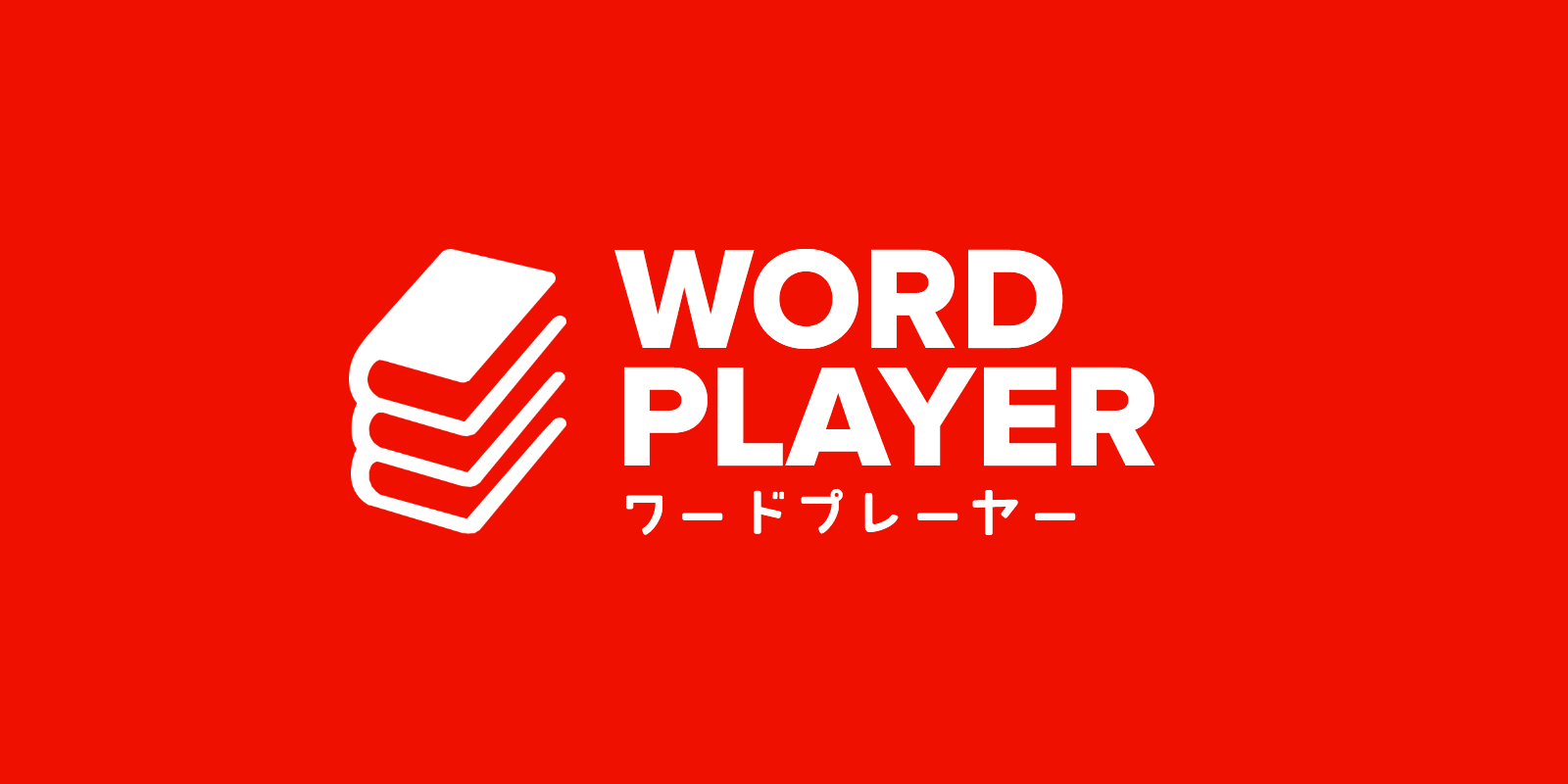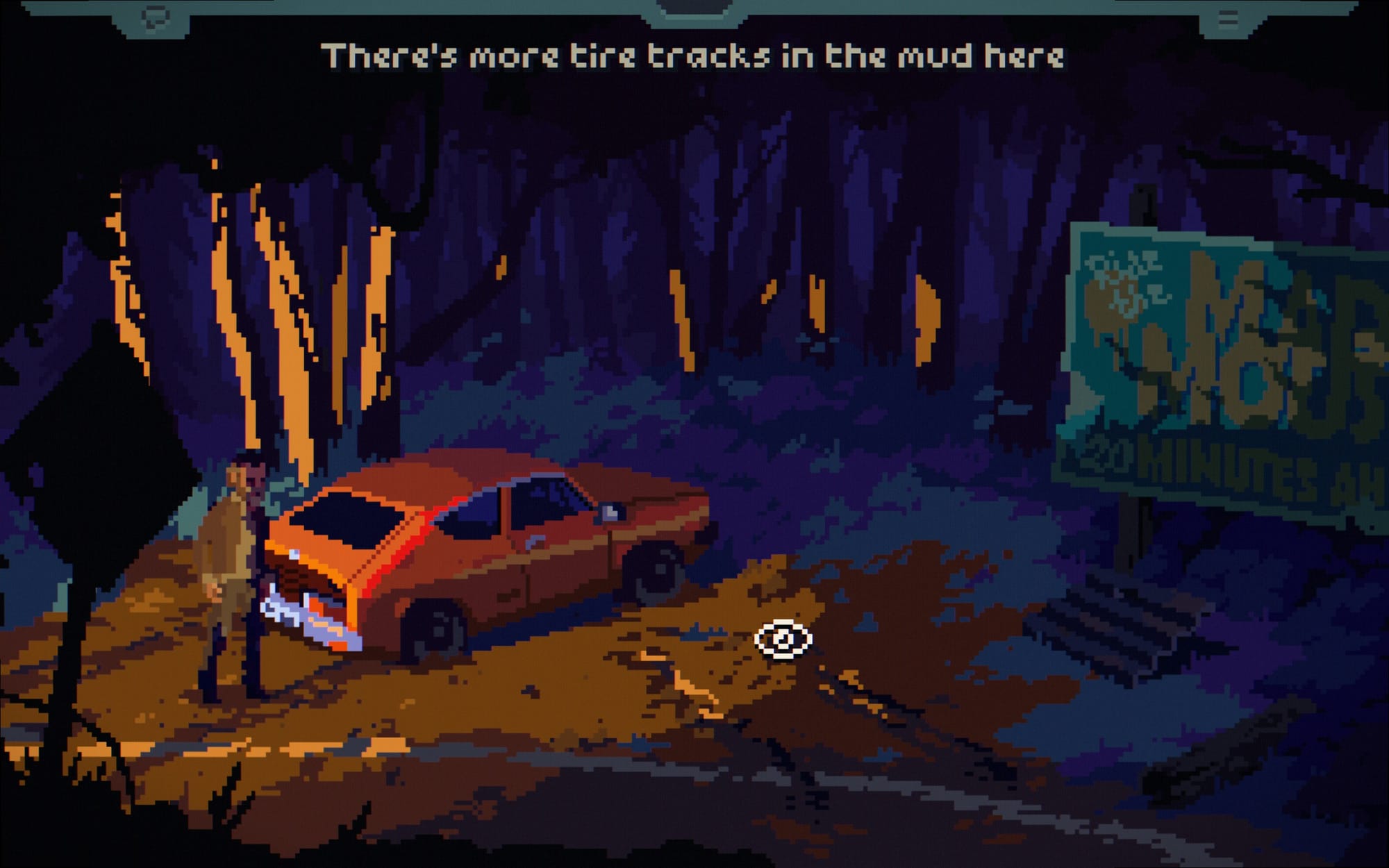WordPlayer: The Drifter's Casual Aussie-ness Is a Delight
Understated Australia

If you're a game fan in Australia - and there are millions of us! - then you know the rare thrill of hearing your country properly represented in a game. The trill of region-appropriate magpie warbling birdsong; a casual "she'll be right" or "mate" at the end of a piece of dialogue; the choked roar of a shitbox 90s Ford Falcon.
I knew that The Drifter was developed by an Australian team - the geniuses at Powerhoof, the team behind the excellent Crawl - and that there would likely be a degree of Aussie-ness to it. Adrian Vaughan's performance as Mick, the poor unfortunate sod at the game's center, was iconic before the game arrived - a classic "your dad's mate" Aussie drawl, thick and deep and familiar. As it turns out, there are a few distinctly Australian accents in The Drifter, a game that is, just quietly, set Down Under, and they've endeared me to this game on a deeper level than I expected.

The Drifter is a pulpy point-and-click adventure title about Mick Carter, the eponymous drifter, who in the game's opening minutes becomes embroiled in a conspiracy involving time travel, a shadowy corporation, and a lot of personal pain. Actually, describing the core plot elements of The Drifter really undersells it - this is a marvellous game, full of great classic point-and-click puzzles held together by the sort of stretchy logic that the genre excels at and a plot that twists and turns in fun ways. It takes a great sci-fi turn, tinged with a bit of horror, and manages to juggle tones brilliantly. It's fantastic, and one of my favourite games of 2025 so far.
But the thing that has delighted me most about The Drifter is its casual, but unmistakable, Australianness. I don't mean that in the sense of "this feels like a product of the Australian ecosystem", more in the sense of "this was made by Australians with a certain degree of love and attention." Vaughn's voice acting is a big part of it - he leans into the accent without exaggerating it, letting his natural ocker-ness come out in the odd "bloody oath". It's such an authentic and sincere performance, and I absolutely loved it. The closest thing you'll get to cultural cringe in The Drifter comes when one character describes themselves as "a few flies short of a dunny", but I think they basically get away with it.
In fact, the clues that the game is set in Australia are largely contextual. Between the accents, occasional slang, the battered orange Datsun one character proudly drives, and the one moment in the game where you find a "waterlogged Twisties packet" on the side of the road, there's enough here to suggest a defined sense of place. Yet the city of The Drifter is entirely invented, and some of the iconography - box cars travelling through metropolitan areas, the newspaper box outside the paper's office - feels like it is there for the sake of pulp authenticity rather than local authenticity. The city map does not neatly match up to any city I've ever been in, and the specific locations you visit are all made up. The Australianess of the game is ambient in a way that you don't see very often. Mick certainly never looks at the Sydney Harbour Bridge and says "strewth, what a beaut" or anything like that.

One location in the game, the Wunyerra Desert, isn't a real place, but the name has a nice ring to it. Wunyerra is, according to this source, an indigenous word from the Narangga tribe of lower Yorke Peninsula in South Australia, meaning "the Devil" - which speaks to the kind of trouble Mick gets into across the game. Meanwhile, a shadowy, monstrous force is referred to throughout the game as the "malindji", which I believe is a term for a representation of a deceased person's spirit. Australia has, historically, been quite bad at meaningfully embracing indigenous Aboriginal languages, and while The Drifter isn't exactly taking giant leaps by featuring two different words, it's still more than I'm used to seeing.
Folks who recognise my name and vaguely remember getting angry at me in 2016 may be familiar with a piece I wrote for Vice back then about Forza Horizon 3 and its depiction of Australia, which I called "a better Australia than Australians deserve". I stand by that piece (and despite what I just said, a lot of readers did too, even if it was the really angry folks who flooded my inbox afterwards). Ever since writing this piece, whenever I really enjoy a game that depicts Australia, I find myself examining that thought with a little more scrutiny than I might have otherwise. What is it, exactly, that makes "Australianness" good in a game?
The more I thought about it, the more I realised that one of the things I really like about The Drifter is how incidentally Australian it is. There's no sense of celebration, or national pride, or even that the game needs you to know that it's Australian. If you're really bad with accents and lack cultural context, you might not pick up on the setting. There are no kangaroos, no culturally appropriated boomerangs, no exoticism. No romanticism or sense that Australia is a weird mythic land where things are just different. You're in grimy urban environments, run-down cemeteries, and, later on, an underground lab that would fit right into a pulpy 90s sci-fi thriller. There's something about it that makes Australia feel more like a part of the larger world, as people understand it, rather than a strange, isolated island that does its own thing.

It's rare to have a story that feels so Australian, that does not necessarily make a big point out of being Australian. It's a game you could adapt into being set elsewhere easily, and I love that, because Australia simply isn't a default setting in games. If a game is set in Australia, it's usually baked into the game's fabric inextricably, and I kind of loved that this wasn't the case with The Drifter. This game could have been set elsewhere. But it's from an Australian team, with Australian actors, and it gets to be Australian without that feeling like the game's core identity.
All of this speaks to me of a clarity in vision. The Drifter has a grounded setting, and it has an identity, and those two things are separate. This isn't rare in games, broadly speaking, but it's not something I'm used to seeing in Australia.
So it's clear to me what needs to happen now: we need to cast Adrian Vaughan in all games going forward. The next Street Fighter character should be a guy who fixes washing machines on weekends for extra money. A party member in the next Final Fantasy should have the vibe of someone who can really handle their beer. The next Resident Evil could have a STARS soldier who you imagine helps his son's friends with their car troubles. Why not?